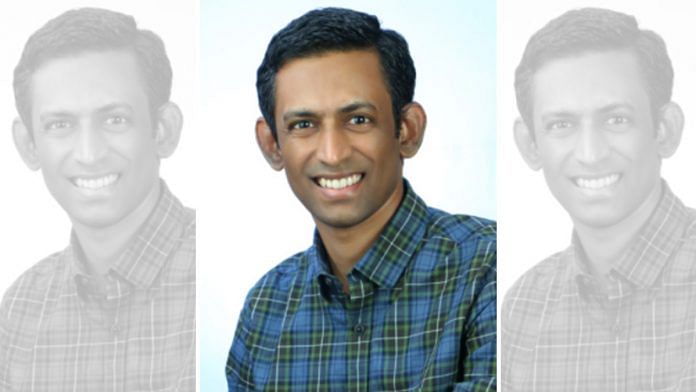Mumbai: In 2009, when the swine flu pandemic had gripped parts of the world, Manoj Gopalkrishnan, now a professor at the Indian Institute of Technology-Bombay (IIT-B), wanted to explore an idea of pooling test samples to increase the speed and the scale of testing for the virus.
However, it remained just an idea, sitting in one folder of Gopalkrishnan’s desktop for 11 years. Then, in 2020, the Covid-19 pandemic hit India and there was an imminent need to increase the efficiency of testing and reduce costs.
“People had started talking about pooling. I realised that this time it was different than 2009, as the problem was at our doorstep unlike during the swine flu pandemic. The response that I got from my colleagues too was encouraging,” said Gopalkrishnan, who works in IIT-B’s Department of Electrical Engineering.
He dusted out the idea in March 2020 and in two months developed a testing tool, Tapestry, with the help of about 10 people, including Ajit Rajwade, Gopalkrishnan’s colleague from IIT-B’s Department of Computer Sciences.
Tapestry is a single-round quantitative pooling algorithm used with the RT-PCR test, which is considered the gold standard of Covid testing. Tapestry, Gopalkrishnan said, can greatly reduce the time taken to test samples and also cut costs by 50-85 per cent because of the pooling.
Earlier this week, the Drugs Controller General of India (DGCI) cleared Tapestry for commercial use as a non-regulated medical device.
The testing tool has been launched by Bengaluru-based Algorithmic Biologics, a start-up founded by Gopalkrishnan in March last year when he started working on Tapestry.
The company is now in talks with campuses and workplaces to use the tool for Covid testing to ensure workplaces remain safe after opening up.
Also read: Govt readies 2 more testing labs to prepare for new Covid vaccines coming to market
How Tapestry works
The tool works like a compression algorithm for molecular testing. Samples from multiple individuals are pooled and tested in a single round using RT-PCR. Each sample is sent to three pools, which makes sure that the testing is in triplicate and results are accurate.
“If a pool comes out positive, I wouldn’t know which sample is positive. But, I can look at other pools, and solve it mathematically to understand exactly which sample is positive,” the 40-year-old professor said, adding Tapestry uses a non-adaptive pooling method.
An adaptive approach is when your next step in testing depends on the outcome of your previous step. Gopalkrishnan said this kind of pooling does not work for labs to test efficiently.
He describes a non-adaptive method as “playing a game of 20 questions, where your questions don’t depend on the answers being given, and where you need to give all 20 questions at once”.
The professor, who has a PhD in computer science from the University of Southern California, said Tapestry helps save time in RT-PCR testing because a laboratory can test multiple samples in a single round.
“Ordinarily, if a lab is equipped to handle 100 samples abs you go to it with thousand samples, there is a backlog and the results take time,” he said.
Similarly, the cost is lower because the number of tests the laboratory is doing is fewer than the number of results, he added.
Ideal for campuses, workplaces
Gopalkrishnan said workspaces and campuses are controlled manageable microcosms, so they are a good space for Tapestry to be first put to use.
The field trial of the testing tool was at the campus of the International Institute of Information Technology, Hyderabad. Since mid-February, samples of all 400 people on the campus are being pooled every week and tested using Tapestry.
“The campus remained open through the second wave. We started seeing a spike before the second wave hit, but we were able to quickly identify those who were positive and the prevalence (of cases) never went up on the campus,” Gopalkrishnan said.
He added the tool can just as well be used for testing entire neighbourhoods or even districts. As of now, Algorithmic Biologics has tied up with two laboratories — LabAssure in Delhi and Dhitiomics Technologies in Bengaluru — and is in talks with a few more.
(Edited by Amit Upadhyaya)
Also read: Serum Institute manufacturing 1st batch of Covovax Covid vaccine this week, says Poonawalla



